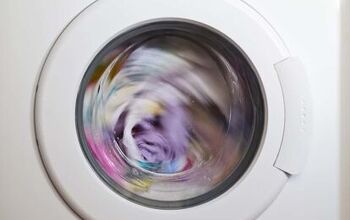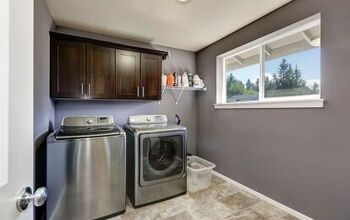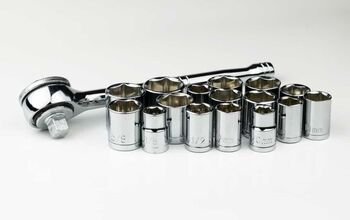Is Your Landlord Responsible For Emptying The Septic Tank?

Unforeseen costs are never fun surprises. When you rent an apartment, one of the benefits is often knowing that when something goes wrong you aren’t responsible for fixing it. Septic tanks are often forgotten since they reside underground, but they are there.
Every so often septic pumps need to be emptied, but when this time comes is it your responsibility or the landlord’s?
A landlord is responsible for emptying the septic tank. The landlord should also perform scheduled maintenance on the septic system when needed. If the tank needs to be emptied more frequently there could be a problem with the tank or how it is being used. If you are knowingly introducing harmful materials into the septic system you may be asked to pay to pump or repair the tank.
Before you determine who should foot the bill to empty the septic tank, it is a good idea to learn how work first. Once you know how a septic system works and fails you will have a better understanding of who should pay to pump it.
Do You Need a Septic Tank Cleaning or Pumping Service?
Get free, zero-commitment quotes from pro contractors near you.

How Septic Systems Work
A septic tank is a waste treatment center located underground omg your property. This large underground structure includes the septic tank and a drainfield. The septic tank has chemicals that can break down organic waste, and separates oils and solids. The system then discharges a substance known as effluent, which eventually is slowly filtered out and released safely into the soil.
Septic systems require little regular maintenance as long as they are treated with care. There are, however, several materials that can harm the system and should be avoided.
What You Should Not Introduce To Your Septic Tank
There are several materials that are notably harmful to septic tanks. These materials should be disposed of using your local waste treatment or hazardous material treatment facility.
Ideally, you should only flush wastewater and toilet paper down your toilet. Additionally, only dirty water should go down your drains.
Never Trash: Cigarette butts, condoms, baby wipes and other plastics, sanitary napkins are all bad things to introduce to a septic system as they do not break down easily.
Tip: Trash can also include food scraps, so do your best to avoid letting food and coffee grinds sneak down the drain. This is true even with a garbage disposal.
No Oils Or Chemicals: Paint thinners, oils, and solvents can cause severe damage to the septic system. Not only will they refuse to break down in the tank, but they can even poison the tank itself.
Normal Maintenance vs. Excessive Pumping And Repair
Normally, a septic tank rarely needs to be pumped. In fact, on average a septic tank only requires pumping every five years or so. This five-year timeline depends highly on how well the tank is maintained. It also depends on how well, or poorly, you treat it.
When a septic tank needs to be emptied more frequently than normal your landlord may raise an eyebrow and even inquire as to what types of materials you are putting down the drain.
Regular Maintenance and Pumping
Regular maintenance and pumping is the landlord’s responsibility. Often, the fee to pump the tank is even built into your rent unbeknownst to you. Some states have standards and laws in regards to regular septic maintenance.
If a landlord is requesting you pay for normal maintenance or pumping you should research these laws. You should not be required to foot the bill for normal septic upkeep. That is the owners financial burden to bear.
Excessive Pumping And Repair
Sometimes septic tanks require pumping or maintenance outside the standard 5-year schedule. There are a variety of factors that can cause a septic pump to fill up or act irregularly. Some involve weather, location, or even bad luck. Some, however, can occur when a tenant adds elements that do not belong in a septic system.
If there is excessive pumping or repair required while you live in a home with a septic system, your landlord may as you to pay the bill. Before you pay the bill, however, there are factors you should take into consideration.
Be sure to request detailed documentation from those performing the septic work. They will provide the cause of the issue. Additionally, even if the excessive or emergency repairs look to be caused by you – it still may be your landlord’s responsibility to pay.
Did the Landlord Provide Septic Tank Details?
If your septic tank is experiencing problems due to improper use then you and your landlord may be at an impasse. While the landlord is normally responsible for septic tank maintenance, he may claim your negligence is to blame. Therefore, he may ask you to pay. Before you agree to pay or reply with an angry response, ask yourself some questions.
Did Your Landlord Tell You There Was A Septic Tank?
The first and most important question you should ask yourself is if you were even aware that your home had a septic tank. Only about 25 percent of American homes have a septic system of sorts. This means many people do not know what you should and should not flush into a septic tank. If your landlord did not inform you there was a septic tank then it can be argued that he is the negligent party.
Were You Given Explicit Instructions On What You Can And Cannot Flush?
Perhaps you were informed there was a septic tank in your home. The next question you should ask is if you were ever given instructions on how you should treat the system. Simply knowing that your home has a septic system does not necessarily mean you know that certain items should never go down the drain.
Often landlords provide tenants with a list of hazardous materials that should not be introduced to the septic system. See if your landlord provided you with this at any time.
Did You Sign Off On “House Rules” or an Addition To The Lease?
Most importantly, you need to look for any signed official document linking you to house rules. Sometimes this information is included in the lease, and sometimes it is a separate document. Review copies of any rental agreement you have to see if it includes specifics about the septic tank or sewage in general.
If Landscaping Caused The Issue
Sometimes septic issues do not stem from what you put in them, but instead they are caused from what you put around them. If you are renting a property with a septic tank, your landscaping and gardening can potentially hurt the system.
Certain aspects of landscaping, including soil types and land slopes, can affect septic tanks and their ability to perform. Have you introduced new landscaping to the yard without the landlord’s consent? If so, and if the landscaping is to blame, then your landlord may be right in asking you to pay to drain or repair the tank.
Related Questions
What’s The Difference Between A Cesspool And A Septic Tank?
A septic tank collects waste, but then filters the waste with its chemical compounds. This process allows a tank to safely collect and remove waste from its tank.A cesspool also collects waste. A cesspool lacks a septic tank’s ability to treat and filter waste. For this reason, septic tanks are usually preferred by homeowners for their environmental and capacity benefits.
Are Septic Tanks Bad For The Environment?
A well-functioning septic system can be more environmentally friendly than a public sewage system. It is critical to perform regular maintenance on your septic tank in order to ensure it remains effective and environmentally friendly.Poorly maintained septic tanks can be very bad for the environment. If you allow your tank to overflow then the contents will leak into the water and soil. This can affect surrounding plants and animals.
How Much Does It Cost To Pump A Septic Tank?
The cost to pump your septic tank will vary depending on the size and current state of the tank. Bigger tanks and bigger jobs will cost more. On average it will likely cost you between 250 and 500 dollars to pump your tank.Tip: Sometimes preparing the area around the tank can save you a bit of money, as it may reduce the labor involved. Ask the company you are using if this option is available to you if you are looking to save money where you can.
Do You Need a Septic Tank Cleaning or Pumping Service?
Get free, zero-commitment quotes from pro contractors near you.

Summing It Up
When your septic tank fills up it will need to get pumped. Often this is just a normal part of the septic system’s cycle. If you find that the tank needs to be emptied often then there is a larger problem underground.
In most cases it is your landlord’s responsibility to empty the septic tank. He should schedule and pay for it to be emptied and maintained. The exception to this is if there is negligence on your part, and you are causing the tank to fill too quickly.
It is wise for you to educate yourself on what you should and should not introduce to a septic system. Even if your landlord has not given you explicit instructions on septic tanks it is best to treat the system well. This helps prevent damage and some large issues that could greatly inconvenience you.

Tom Gaffey is an expert writer who currently resides in Washington D.C. Tom has a passion for real estate and home improvement writing, as well as travel and lifestyle writing. He lived the last twelve years in Hawaii where he worked closely with luxury resorts and event planners, mastering his knowledge of aesthetics and luxury products. This is where he found his passion for home improvement and a keen interest in DIY projects. Currently, Tom resides in Washington D.C, and also working on his debut fiction novel.
More by Tom Gaffey



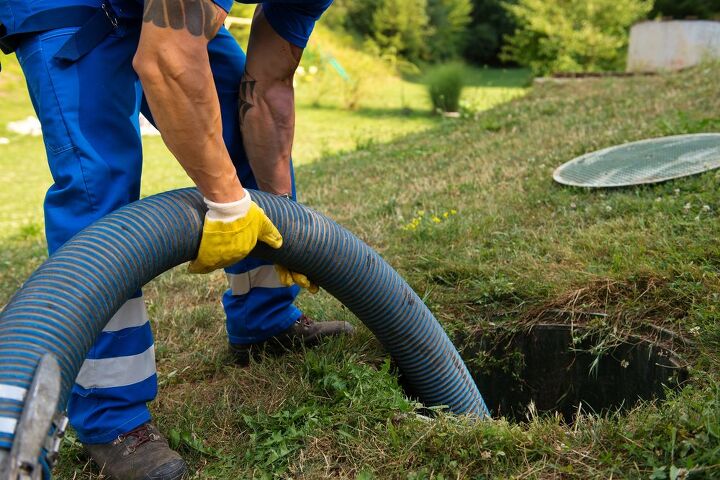






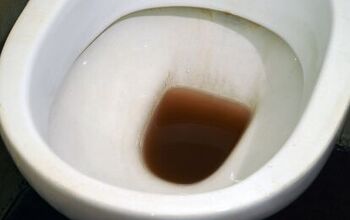
![How Much Weight Can a 4×4 Support Horizontally? [It Depends!]](https://cdn-fastly.upgradedhome.com/media/2023/07/31/9070333/how-much-weight-can-a-44-support-horizontally-it-depends.jpg?size=350x220)






